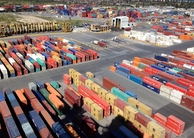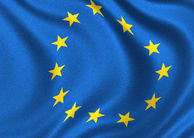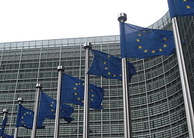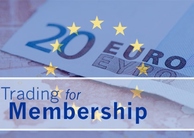|
European Union (tagged articles)
The keyword European Union is tagged in the following 31 articles.
2017, Vol. 9 No. 06
Similarly to many European countries, the Swedish population often perceive their history as an epoch of homogeneity: a time when every Swedish citizen was believed to have had the same ethnic phenotype, spoken the same language, believed in the... Read Article »
2016, Vol. 2015/2016 No. 3
When Britain and France signed what became known as the ‘Entente Cordiale' in 1904, it brought into being an era of mutual cooperation between two neighbours whose past had often made them the best of enemies. The partnership served and survived... Read Article »
2015, Vol. 6 No. 1
This paper investigates the relationship between various types of economic freedom and intra-EMU export growth. Export growth is the primary empirical puzzle that this paper seeks to explicate, and is important because the EMU's inception preceded... Read Article »
2014, Vol. 6 No. 11
Human rights protection in Europe evolved significantly over the last century, culminating in the creation of the European Court of Human Rights. Unfortunately, the decisions made by the European Court of Human Rights are not binding and do not... Read Article »
2014, Vol. 8 No. 1
What are the prospects for European Union accession in Bosnia, a country with a legacy of ethnic conflict and malfunctioning democracy? How might the accession of Croatia to the European Union affect this process? This paper analyses the current... Read Article »
2014, Vol. 6 No. 10
In July 2012, Spain's unemployment rate was above 20%, its stock market was at its lowest point in a decade, and the government was borrowing at a rate of 7.6%. With domestic demand depleted and no sign of recovery in sight, President Mariano Rajoy... Read Article »
2014, Vol. 1 No. 1
A European single market for electricity is modeled to find the optimal portfolio of energy generation technologies in the presence of a carbon tax. The goal is to find the Pareto optimal carbon tax rate such that both carbon emissions and production... Read Article »
2014, Vol. 6 No. 04
The European legal system has been considered as either an intergovernmental legal system or a supranational one. The intergovernmental order, on the one hand, emphasises that the European Court of Justice should consider the preferences of member... Read Article »
2014, Vol. 2013/2014 No. 1
The recent economic crisis roved to be immensely threatening to the economic equilibrium within the European Union (EU). Beginning in the United States, it then proved its "domino effect" by covering the EU, resulting in so-called 'financial stress... Read Article »
2013, Vol. 5 No. 10
This article highlights the European Commission’s role within the European Union (EU), which has been weakened over time. Through this essay various aspects of the Commission’s power in relation to the structure and procedures of comitology... Read Article »
2013, Vol. 5 No. 09
The quest for economic supremacy has been at the heart of the European integration process since its very inception. Tracing the historical origins of the economic progress agenda, Europe’s ambition to bolster its economy vis-à-vis... Read Article »
2012, Vol. 2 No. 1
The subject of European legal integration entered the spotlight of interdisciplinary studies in the mid-1990s and has continued to maintain, if not increase, its prominence in scholarly literature (Mattli and Slaughter, 1998, 177-178). As Egan,... Read Article »
2012, Vol. 4 No. 05
Is European Citizenship merely a mechanism for a deepening financial integration of the European Union? Or is there a deeper meaning and a deeper reasoning for the development of the concept of European Union Citizenship into an all-encompassing... Read Article »
2012, Vol. 4 No. 01
Does candidacy to the European Union (EU) increase a nation’s Trade Openness? A good way to begin examining this question is by asking, what is Trade Openness? Simply put, it is a nation’s imports plus its exports divided by its GDP ([... Read Article »
2012, Vol. 2011/2012 No. 2
This essay will analyse the on-going events in the Eurozone single currency area. It will look at the current sovereign debt crisis, most obviously manifested in Greece, Portugal and Ireland, and try to envisage how it will change the future course... Read Article »
2012, Vol. 2011/2012 No. 2
In spite of the above-described traditional sentiment that the European Union (EU) was primarily an economic actor, with all other priorities seconded to that fact, trade policy has been inextricably linked with the EU’s international presence... Read Article »
2011, Vol. 3 No. 09
Of the European Union’s twenty-seven member states, no country is more sceptical of political and economic integration than Great Britain. The English are profoundly independent and inherently suspicious of their continental neighbours; an... Read Article »
2011, Vol. 2011/2012 No. 1
It was commonplace among academics of the 1970s to share an understanding of the frozen nature of international relations during the Cold War period, and to hold similar assumptions about the fixed character of the nation-state and the importance... Read Article »
2011, Vol. 2011/2012 No. 1
Among European states in the aftermath of the Second World War, multilateral cooperation was seen as a long term stabilisation for peace. The European Union (EU), since its establishment in 1957 as the European Coal and Steel Community with six... Read Article »
2011, Vol. 2011/2012 No. 1
The Treaty of Lisbon1 has had effects on the workings of the European Union, and has significant implications both for how it functions through its provisions on governance and decision-making and on how the union develops. Lisbon has political... Read Article »
2011, Vol. 2011/2012 No. 1
To say the recent few years have not been the EU’s brightest would certainly be an understatement. There is so much eclecticism, topic deviation and “eurospeak” that one could forget what the EU really stands for. Just the list... Read Article »
2011, Vol. 2011/2012 No. 1
The Economic Monetary Union (EMU) is the end point of an ambitious and historic stage of integrated market changes1 that not only challenge the structure and foundation of modern-day liberal capitalism, but also offer – where successful &ndash... Read Article »
2011, Vol. 2011/2012 No. 1
“In God We Trust” - the motto that inspired a nation built on the paradox ‘out of many, one’ could be construed as the wish for ‘divine goodness and order in the universe’.1 It entails the full recognition of... Read Article »
2011, Vol. 2011/2012 No. 1
The first decade of the twenty-first century was a period of change for Russia. The crisis of the 1990s was/were overcome and its international posture has improved. However, the scope and the stability of the shift are debatable and there is no... Read Article »
2011, Vol. 3 No. 04
This case study asks the following question: given the symbol of the European Union as the ultimate supranational, rights-based, compliance-inducing international organization, why have member states France and Italy escaped punishment for their... Read Article »
2011, Vol. 2010/2011 No. 1
The European Union (EU) is rarely seen as a powerful actor on the international relations stage. A statecentric, ‘high politics’ view of global politics tends to overlook the involvement of the EU and its effectiveness, 2 and the dominance... Read Article »
2010, Vol. 2009/2010 No. 1
“But you can’t grow,” answered the Fairy. “Why not?” “Because Marionettes never grow. They are born Marionettes, they live Marionettes, and they die Marionettes.” “Oh, I’m tired of always being... Read Article »
2007, Vol. 1 No. 1
Fifteen years ago, the collapse of the bipolar world overwhelmed the installed world order. The USA became the only superpower standing and leading the world organization. They have now to deal with emerging countries such as China and India. On... Read Article »
2007, Vol. 1 No. 1
In Washington as in Peking, in Beirut as in Bamako, the question is asked of us: what is the European Union’s (EU) foreign policy? In Lisbon on October 18th, the 27 member states agreed to a first response on means and tools. With the creation... Read Article »
1999, Vol. 1998/1999 No. 1
When Great Britain joined the European Union in 1973 (then referred to as the European Community) many expected the British common Law system to clash with the European Law system, which is mainly based on its continental predecessors, in particular... Read Article »
1997, Vol. 1996/1997 No. 1
It is a paradox of modern day politics that an issue of such immense constitutional and practical significance to the future of Britain as that of further European integration, which excites such great activity amongst politicians, should be... Read Article »
Expedited Article Review
Submit an article and get a decision fast.
If you need a fast decision, INQUIRIES Journal offers expedited processing of your submission for a small fee. Depending on the expedited review option you choose, you can receive a decision in as few as 5-days.
In addition to a shorter review period, the fee supports the journal's continued operation and open-access publishing model. Standard submissions are always free. Submit Now » - Submit an Article to Inquiries Journal -
|


























